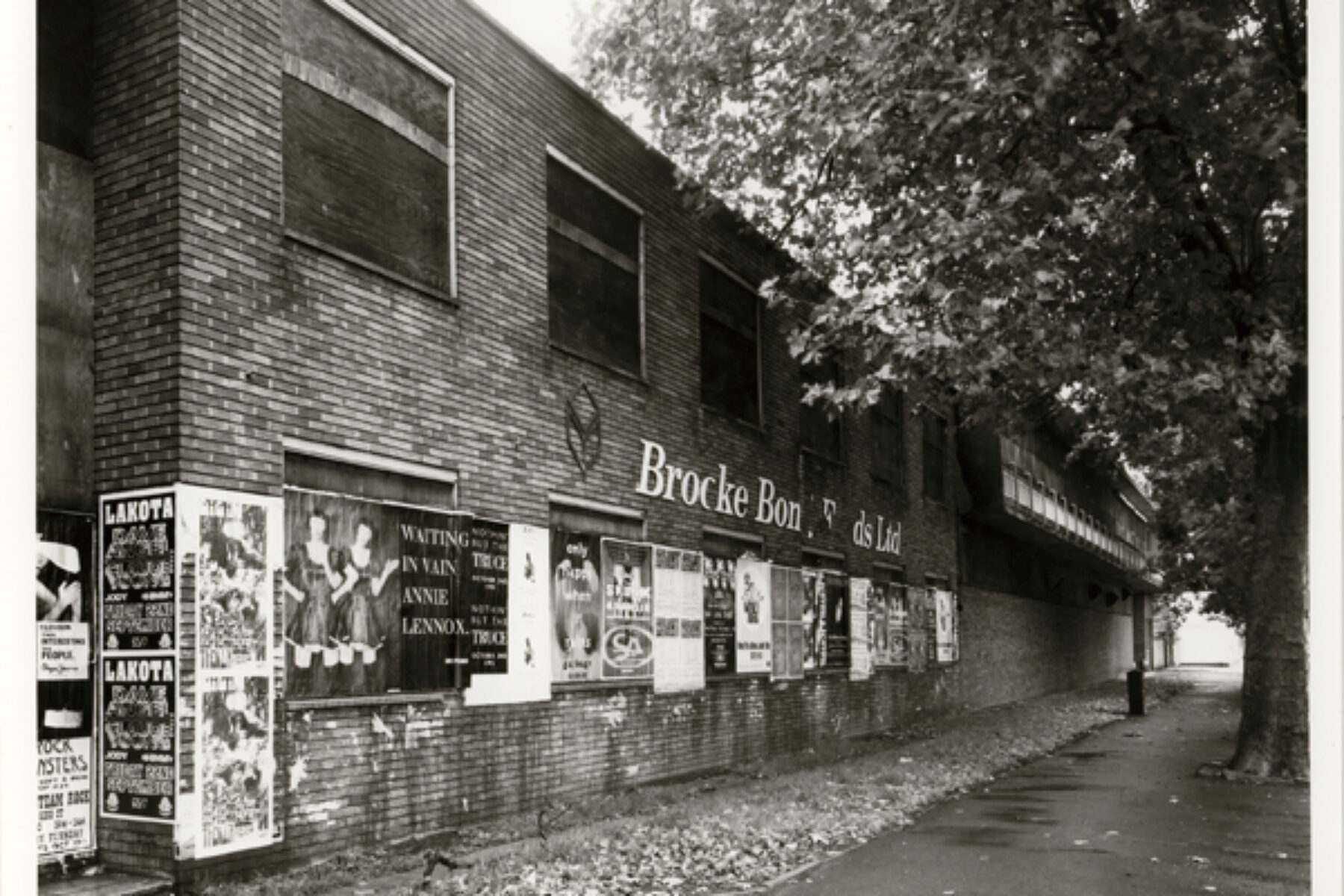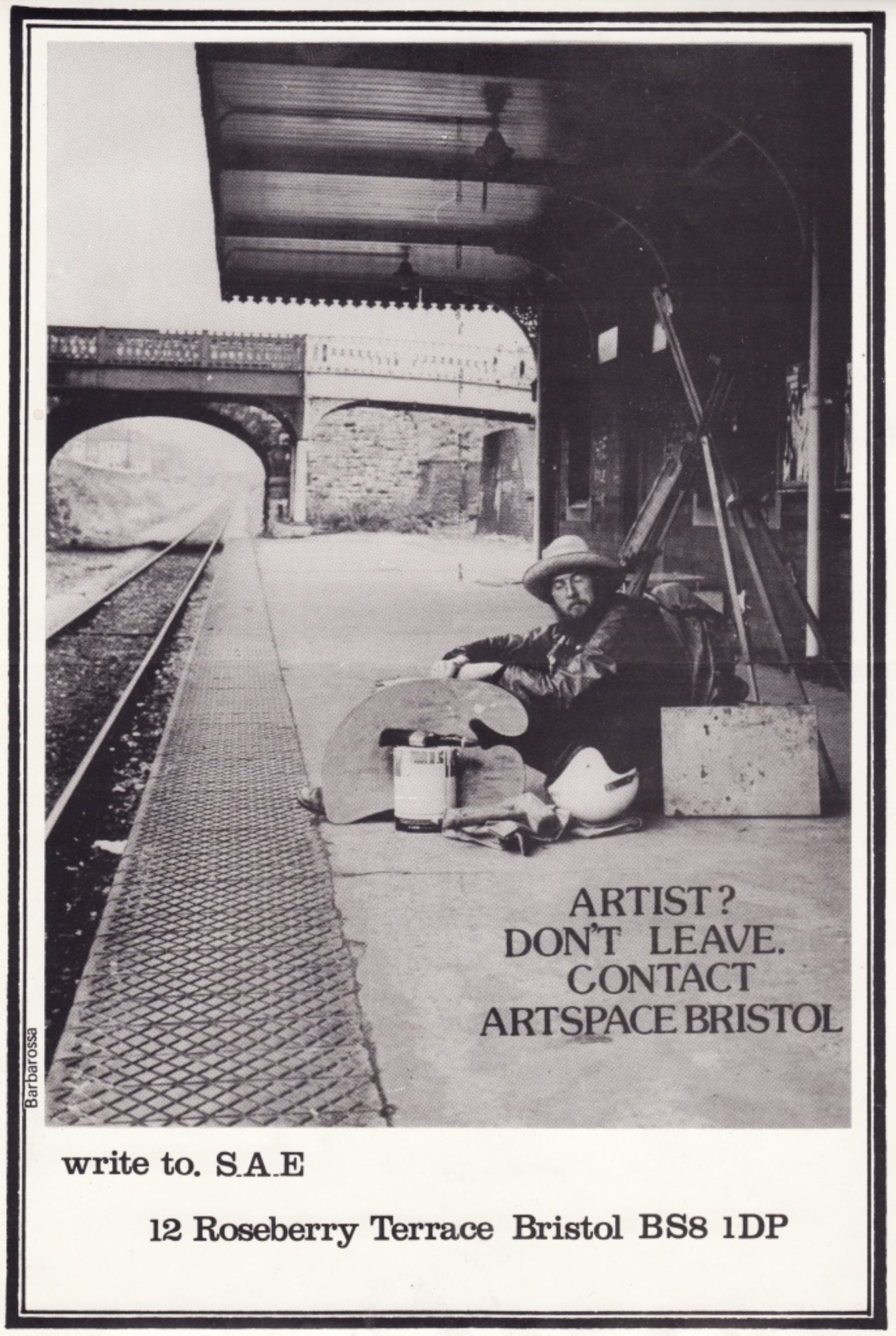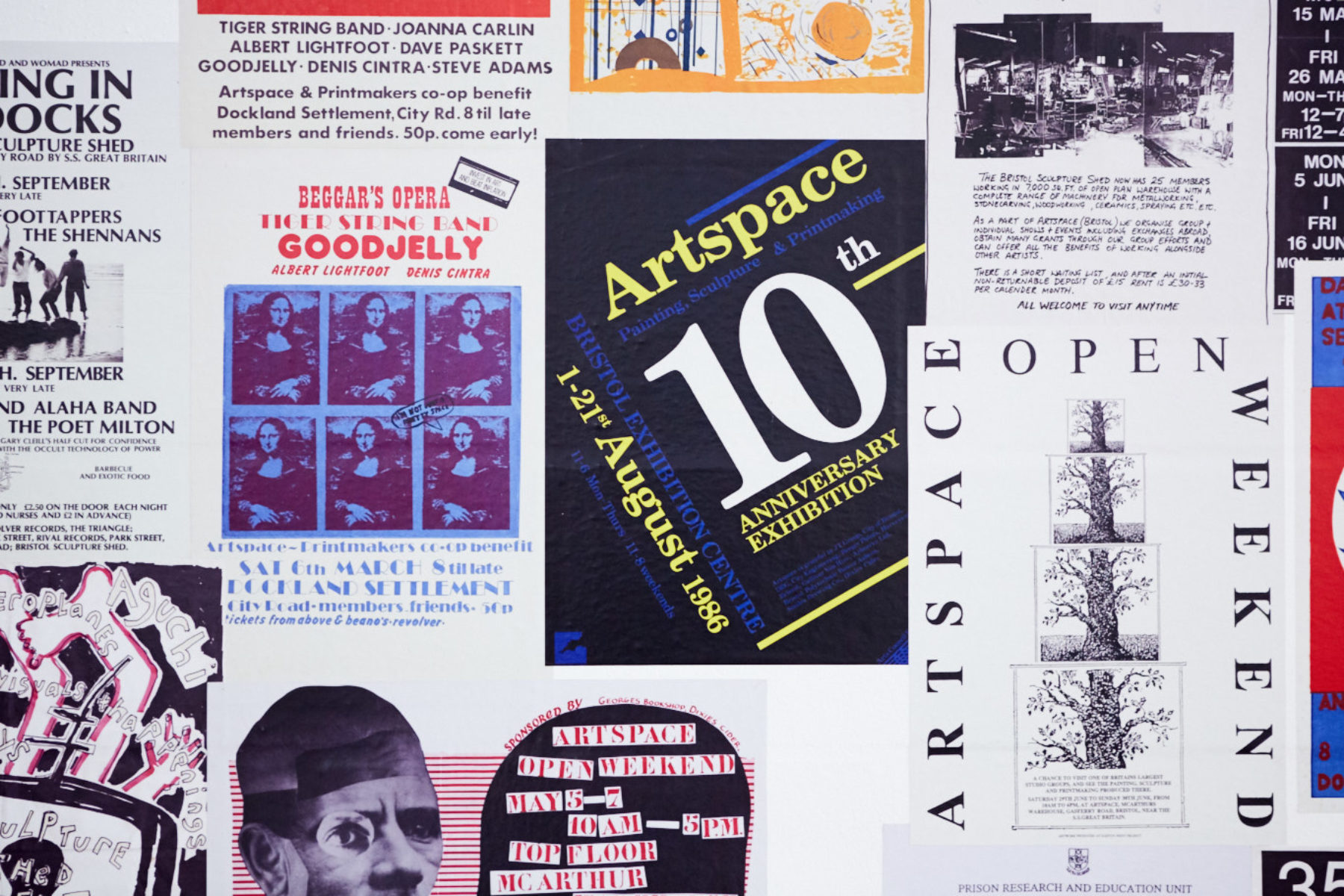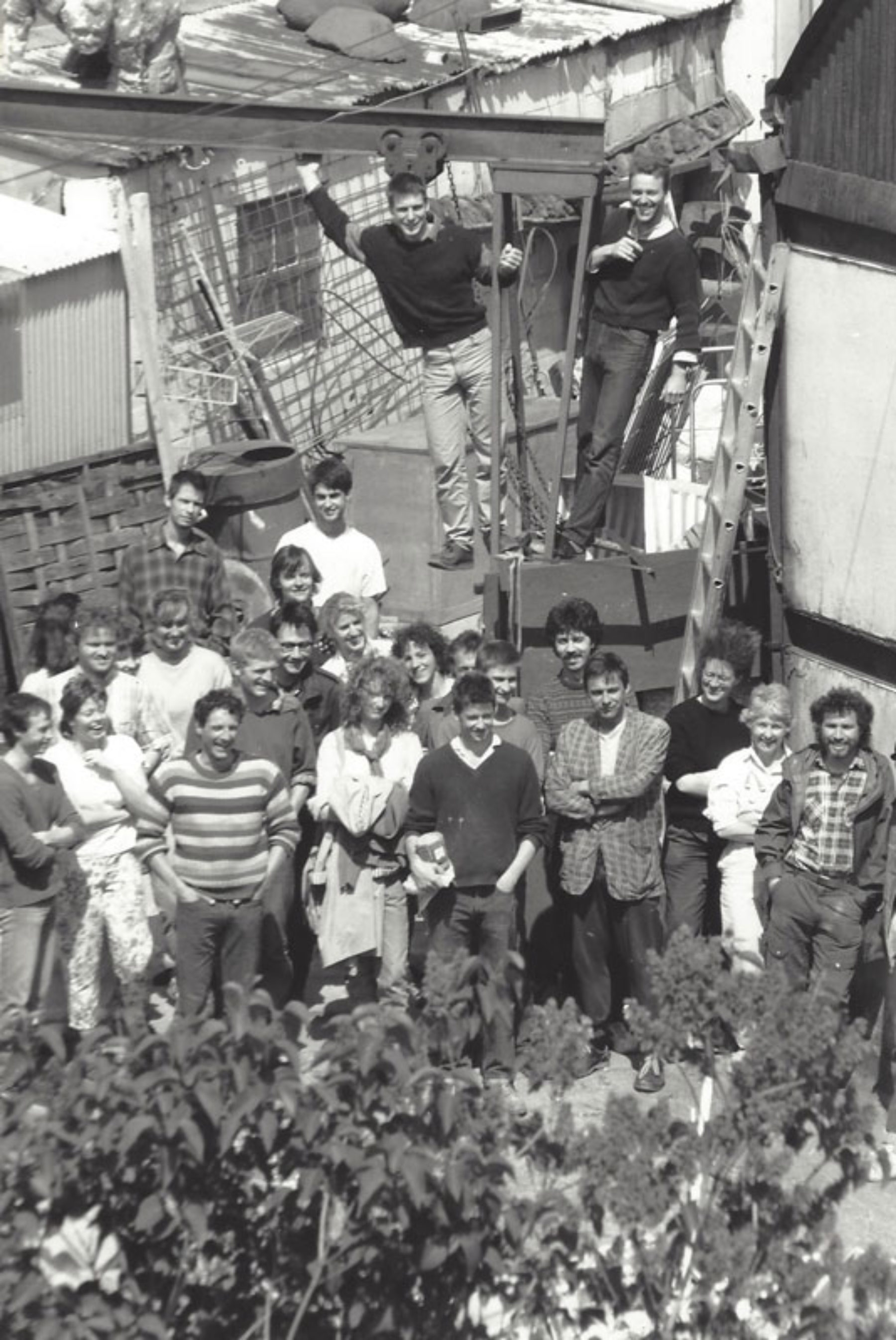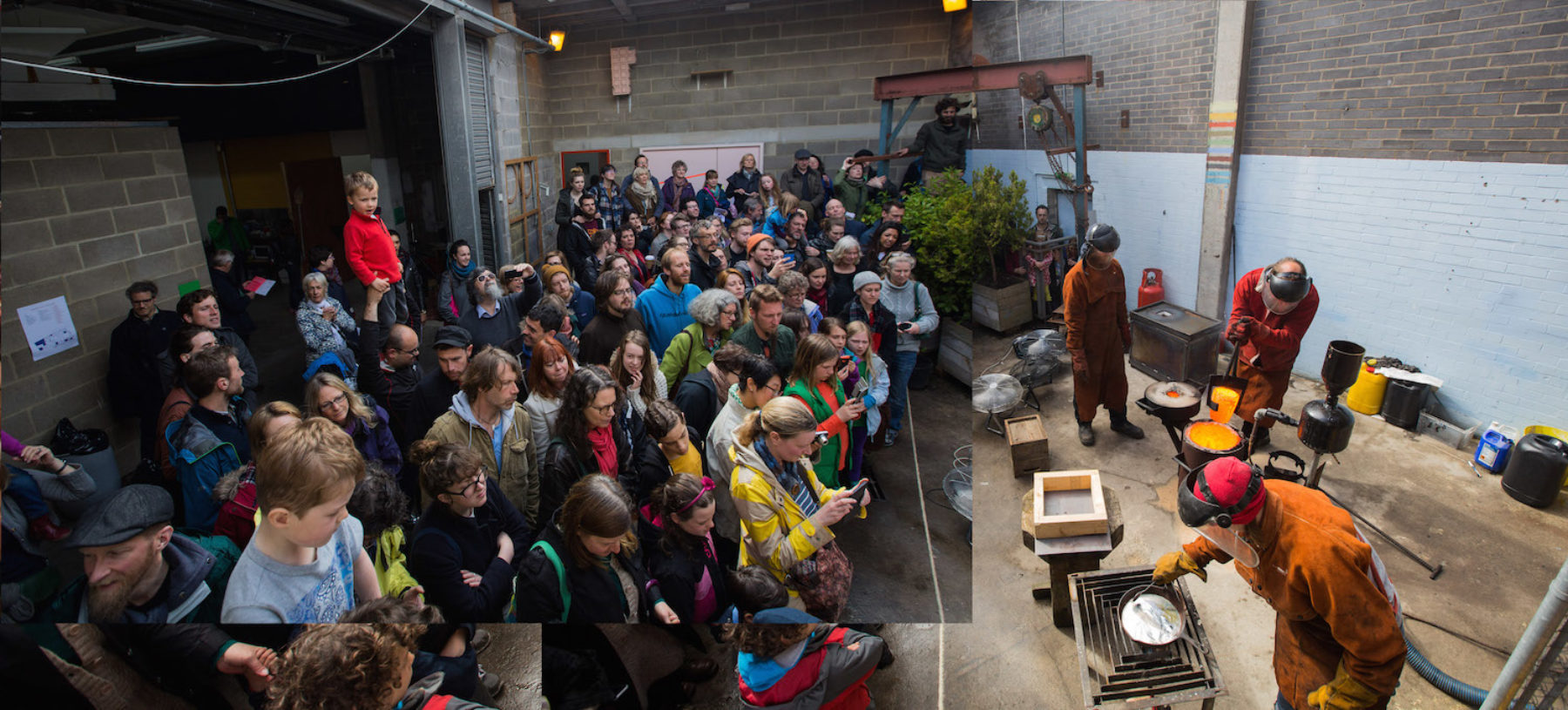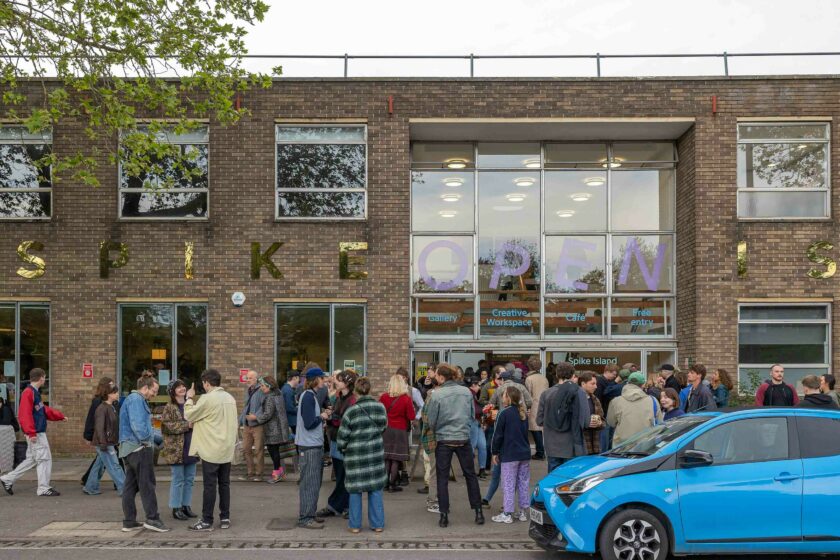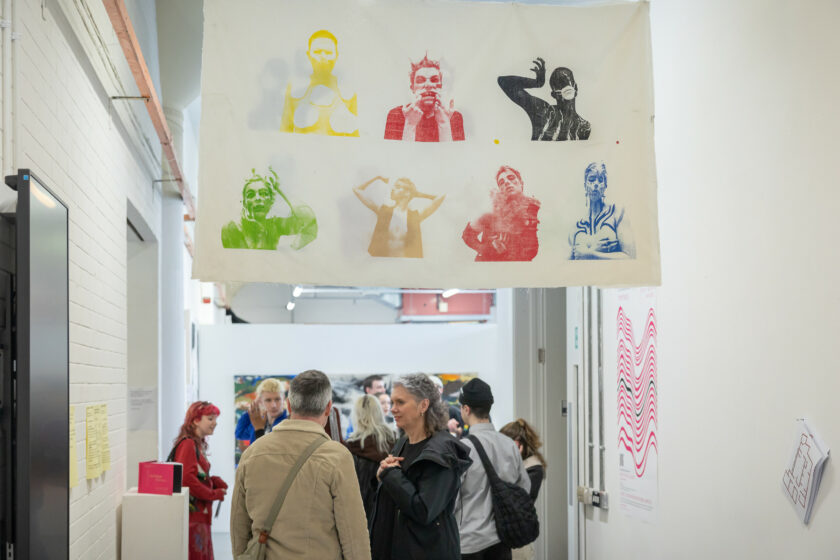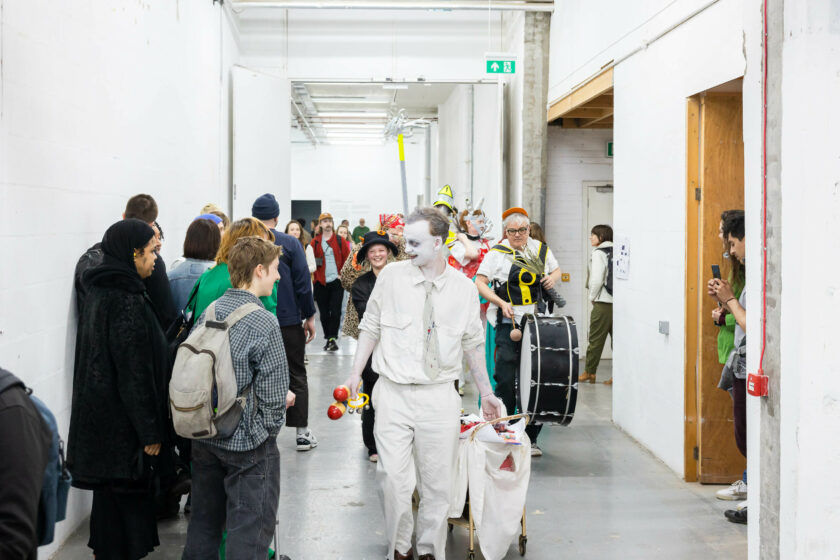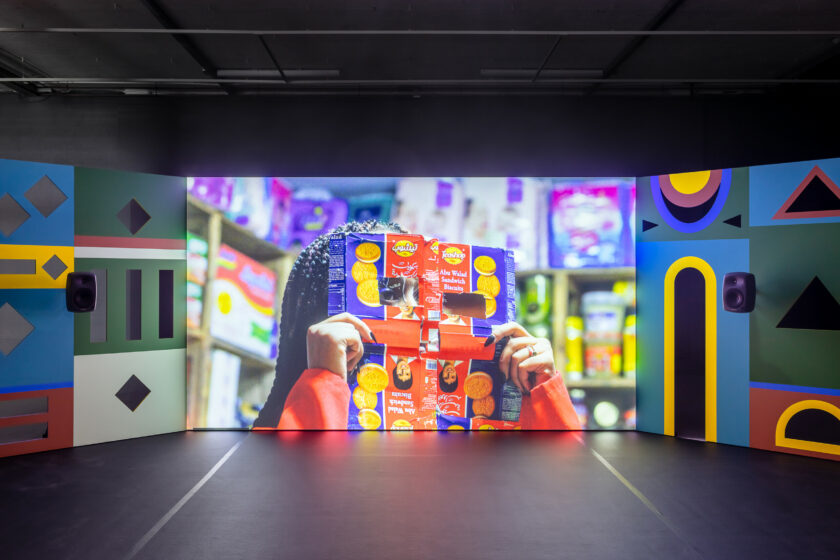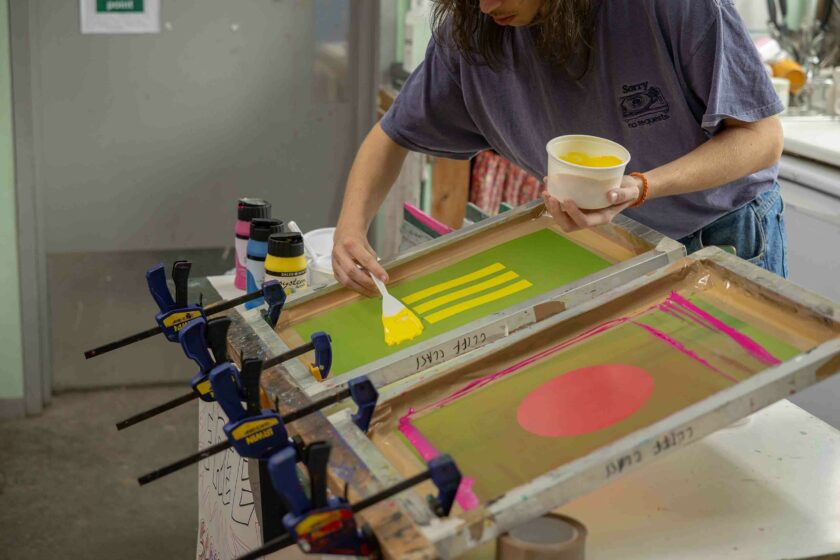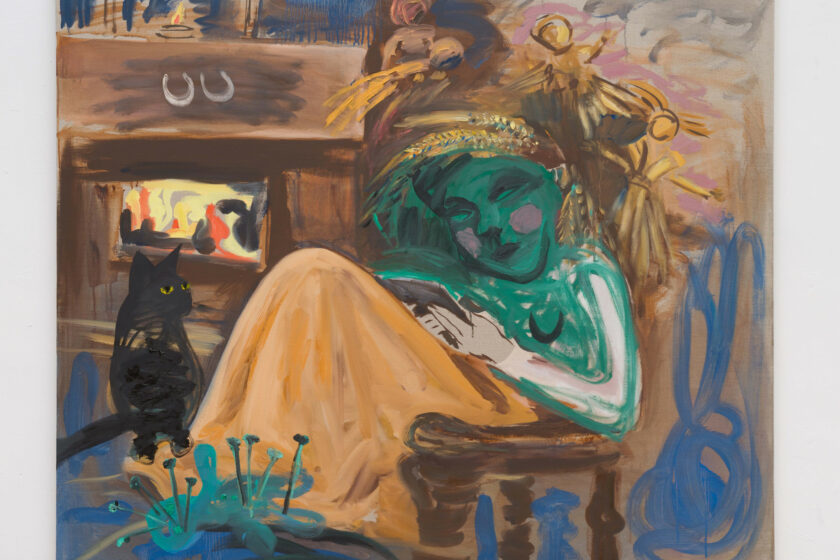FOUNDED AS A SPACE FOR ARTISTS
Artspace Bristol – which later became Spike Island – was founded in the mid-1970s by a group of painters, sculptors and printmakers who sought out and administered affordable studio spaces for artists in Bristol.
The artists originally moved into the McArthur’s Steel and Metal warehouse on Gas Ferry Road close to the current building. Along with the Bristol Filmmakers Co-op and Avon Touring Theatre, Bristol Printmakers, and Top Floor Studios, each company used the space to best facilitate and support their work.
While individual artists set up their own studios, Bristol Printmakers established an open-plan space where Artspace members could freely use the printing presses and other equipment. This open and collaborative approach has been central to Spike Island’s ethos ever since.

Artspace: Don't Leave poster (1975)
As the artists’ work developed, so did the studio space. In the mid-1980s, it was decided that more space was needed to support artists making large-scale sculptures. The Sculpture Shed Limited was set up in 1984.

Artspace 40th anniversary display (2016) Spike Island Bristol. Photograph by Max McClure
Part of Bristol
Artspace Bristol aimed to support artists to live and work in Bristol.
They hosted a variety of fundraisers and Open Studio weekends, group exhibitions, residencies and cultural exchanges, and worked hard to cement Bristol’s reputation as a cultural centre for artists.
The Artspace artists converted and occupied their disused Victorian warehouse until 1989 when, due to the threat of increased rents and a proposed re-development of the site, they were forced to move. With mass public support, they successfully lobbied the council to secure a new home in one of the city’s many empty dockside buildings. 12,000 people signed a petition to protect the future of Artspace – a clear sign of how important they were to the wider city.

Artspace studio artists and founders c. 1980s
Artspace studio artists and founders c. 1980s
Watch: A history of Artspace
ARTSPACE from electronicsunset on Vimeo.
A new home
In 1992, the artists moved into the former Brooke Bond tea-packing warehouse and Spike Island was born. With the help of lottery funding, and private donations, the team redeveloped the site to build a museum-sized gallery space, individual studios, a print studio, and café.
Today, Spike Island is home to hundreds of artists, creative businesses, and Associates. Located in the heart of Bristol, it continues to make the city a great place to visit — and a great place to make art.


